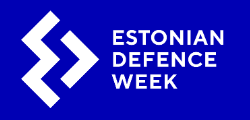Estonian Defence Industry Symposium “The Power of Disruption”
Early Morning workshops
Morning General Assembly
& High Value VIP speakers
A panel discussion: What Does the future for Defence Industry look like?
Afternoon Theme sessions:
- DefSecIntel’s Cyber AI, ISTAR and cyber room
- Helsing AI & autonomous systems room
- Milrem’s & Threod`s unmanned solutions room
- Startup & VC room
Cafe & networking at EXPO
Dinner by EDIA & Invest in Estonia
Defsecintel Solutions pre-dinner event. (Invitations only)
(Symposium and Dinner by invitation only)







